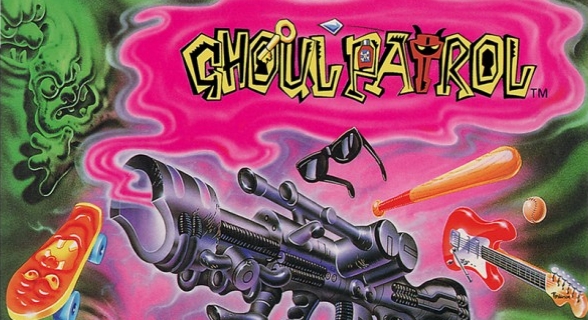
Continuing to review the games you weren’t supposed to notice we hadn’t already
After Zombies Ate My Neighbors was released, LucasArts proceeded to get all the mileage out of the SNES game’s engine that it could. Mark Ebert and Harrison Fong’s follow-up title Metal Warriors, Hal Barwood’s bizarre Big Sky Trooper, and this sequel to Zombies, Ghoul Patrol, were all powered by the same tech built for the top-down classic, and account for some of LEC’s best console offerings from the early 90s. Fortunately, while you may not remember all of these games, they are gradually being re-released for Nintendo’s Virtual Console service on the Wii, with Ghoul Patrol’s inclusion in Monday’s line-up being the latest arrival.
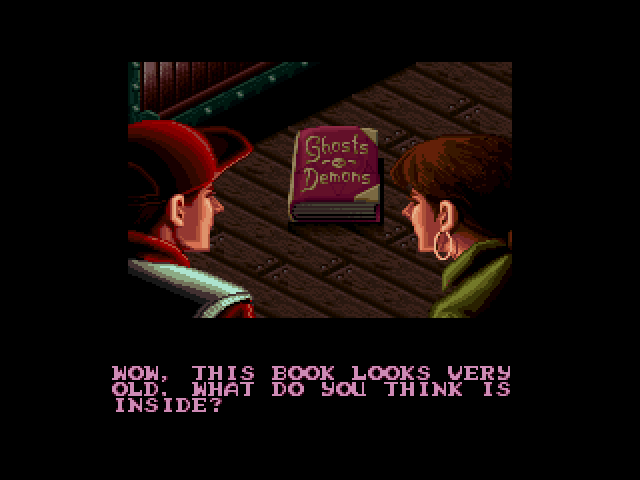
The story goes that Ghoul Patrol began as a third party title that LEC had licensed the aforementioned engine out for, and originally had nothing at all to do with Zombies Ate My Neighbors. For whatever reason, the project was floundering in its development, and somebody hatched the idea to inject Zeke and Julie as the playable characters and transform the title at the last minute into an official sequel to the 1993 winner. The final product was headed by an internal team led by Kalani Streicher and equipped with artist Harrison Fong who, like Ebert, cut his teeth on the Maniac Mansion Nintendo transition.
Ghoul Patrol has pretty much identical gameplay to its predecessor, with the biggest difference being that it’s maybe harder, if that’s possible. Like the original, the game is a spoof of the B-movie genre, with Zeke and Julie being pitted against all sorts of demonic foes while they collect weapons, items, keys, and neighbors “victims” who stand around haplessly. The opening cutscene finds the bodacious, tubular and in all other ways rad teen heroes pulling a Bruce Campbell and inadvertently unleashing a gnarly demon (possibly Satan himself) by reciting an incantation found within the pages of an ancient tome at a local library exhibit. The result is the demon and his countless minions running amok throughout various timelines. Zeke and Julie, feeling somehow responsible, make it their business to put a stop to the madness.
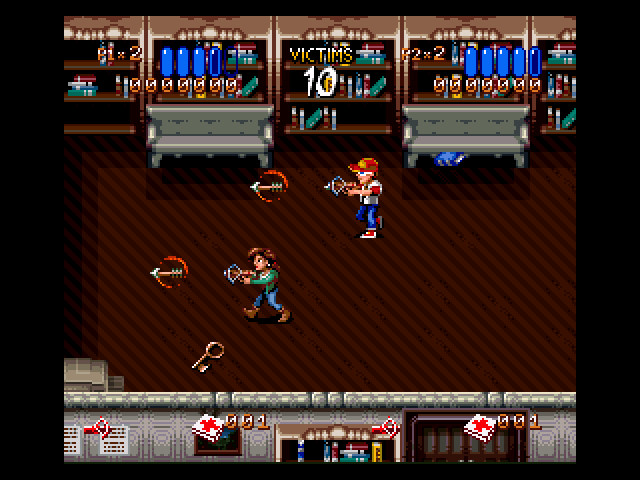
This premise allows for settings ranging from Ming gardens, pirate ships, medieval battlefields, and even a final level that takes place in Hell itself. Each theme is assigned a couple of levels and culminates in a boss fight, making for about twenty stages total. You have the choice of attempting to survive all of them either alone or in two-player co-op, the latter being twice as enjoyable but definitely no more forgiving.
As was the case the last time around, there’s a fun variety in the range of weapons and enemies, the artwork is detailed and pleasingly goofy, and the gameplay, effectively untouched - the only modifications of note are the ability to jump and slide, and the civilian radar being replaced by less useful callouts for help - is polished and addictive. Yet, while as a sequel Ghoul Patrol does its job overall, it doesn't entirely manage to recapture the charm of Zombies, whose send-up of cinematic cheese seemed somehow more inspired in its execution. Here, the humor feels a little less prevalent, and the concept of the original is simply reprised rather than built upon or freshened with surprises. It's a pretty no-nonsense game, and this is a series that should have nonsense to spare. Ghoul Patrol suffers slightly from being a derivative shadow of its predecessor; in some ways this was unavoidable, and in some ways it was not.
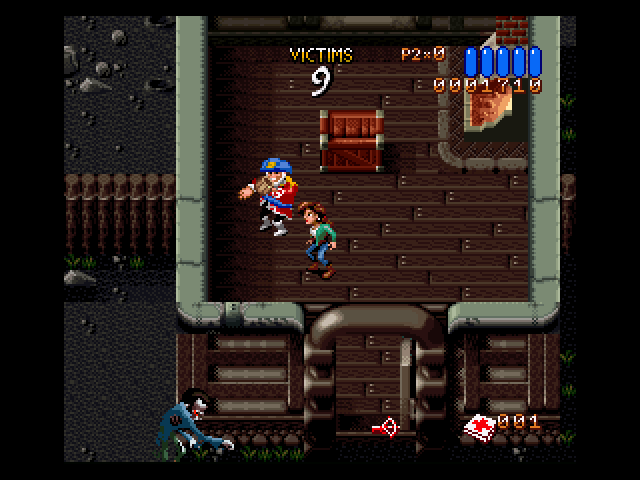
Although Ghoul Patrol was the only official sequel to Zombies, it's arguable that the series' spirit continued with the original Playstation/Sega Saturn game Herc’s Adventures. Published by LucasArts in 1997, it is another forgotten gem which took on the subject matter of Greek mythology but features much the same gameplay as Zeke and Julie’s manic misadventures. The explanation is that it was developed by Big Ape Productions, a studio founded by none other than series creator Mike Ebert himself. LucasArts also apparently attempted some sort of "spiritual successor" to the series with a 3D game named (or nicknamed) Sawyer in the early 2000s. Allegedly dealing with alien invasion, the game was canned midway and its team regrouped to build Star Wars: Bounty Hunter. One imagines that there was a lot of "you’re now being transferred from whatever you were working on to a Star Wars project" going on at LucasArts at that time.
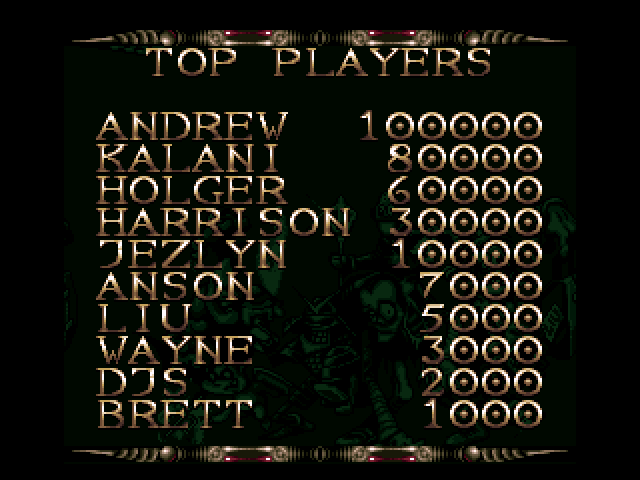
Ghoul Patrol is not superior to or even as good as the cult favorite it follows, but it is a respectable sequel, and deserves to be played by more than the four people who have. With its recent Virtual Console debut as part of LEC’s (hopefully ongoing) effort to complement their Steam re-releases, another one of the company’s better console games from the old days is now available to be enjoyed either nostalgically or for the first time. Ghoul Patrol is an unknown but not undeserving selection, and if you enjoyed Zombies Ate My Neighbors and are craving more run and gun zaniness, this is a purchase I can heartily recommend.
A review by Jason, who considers this game’s conceit to be one of many reasons to avoid the library.

Pros: More of the same great co-op gameplay found in the original
Cons: Presentation decidedly less memorable than its predecessor; difficulty often more frustrating than fun
